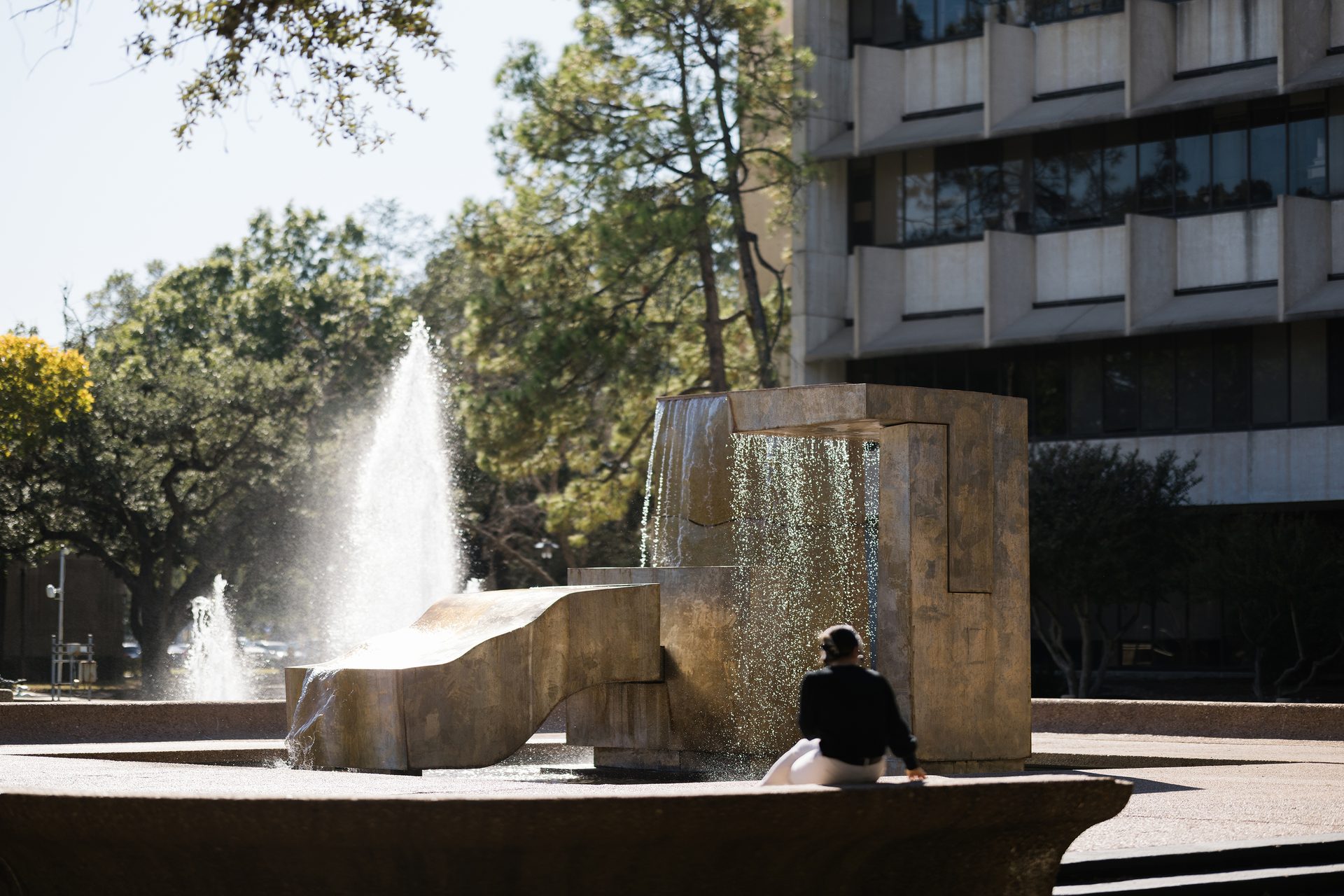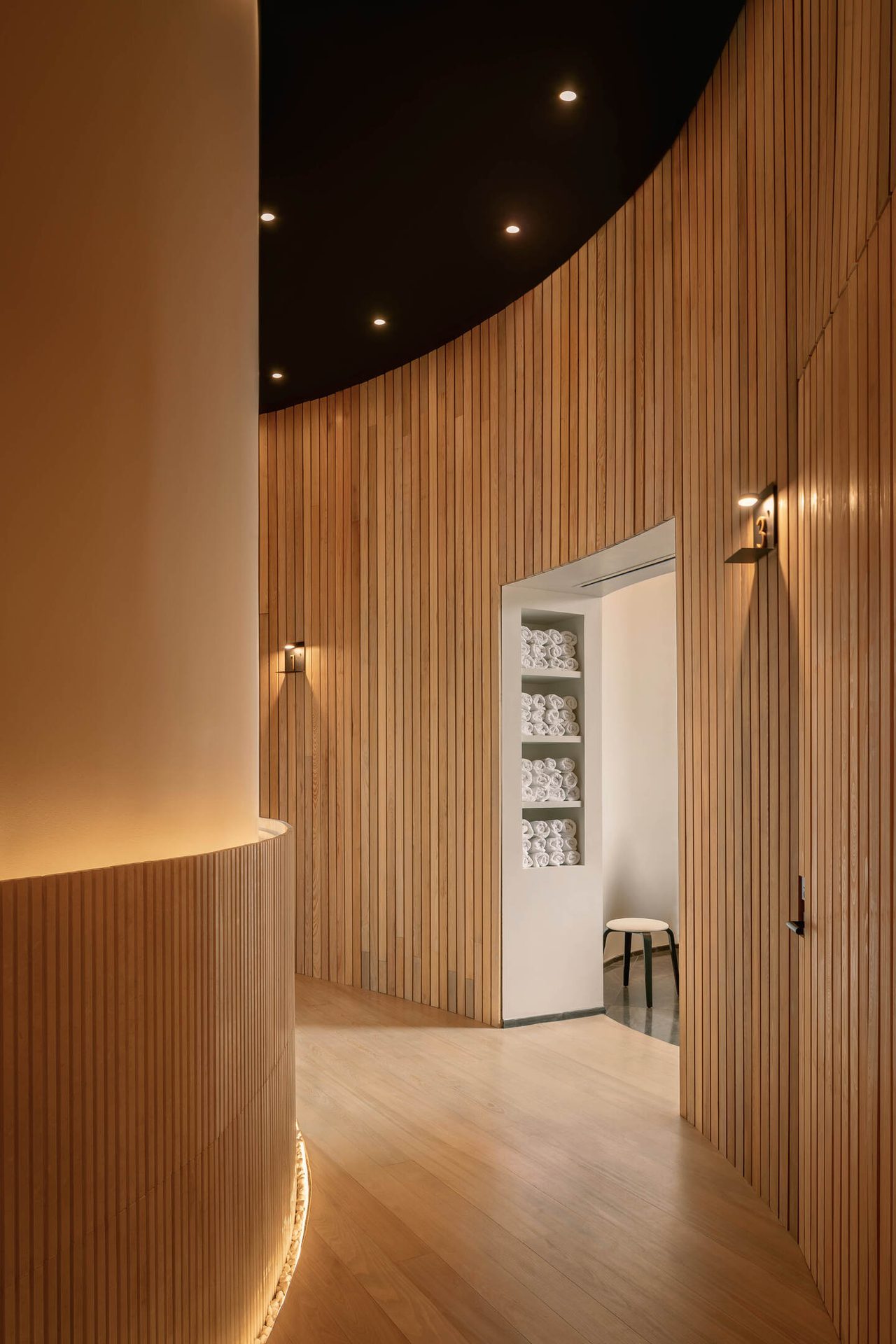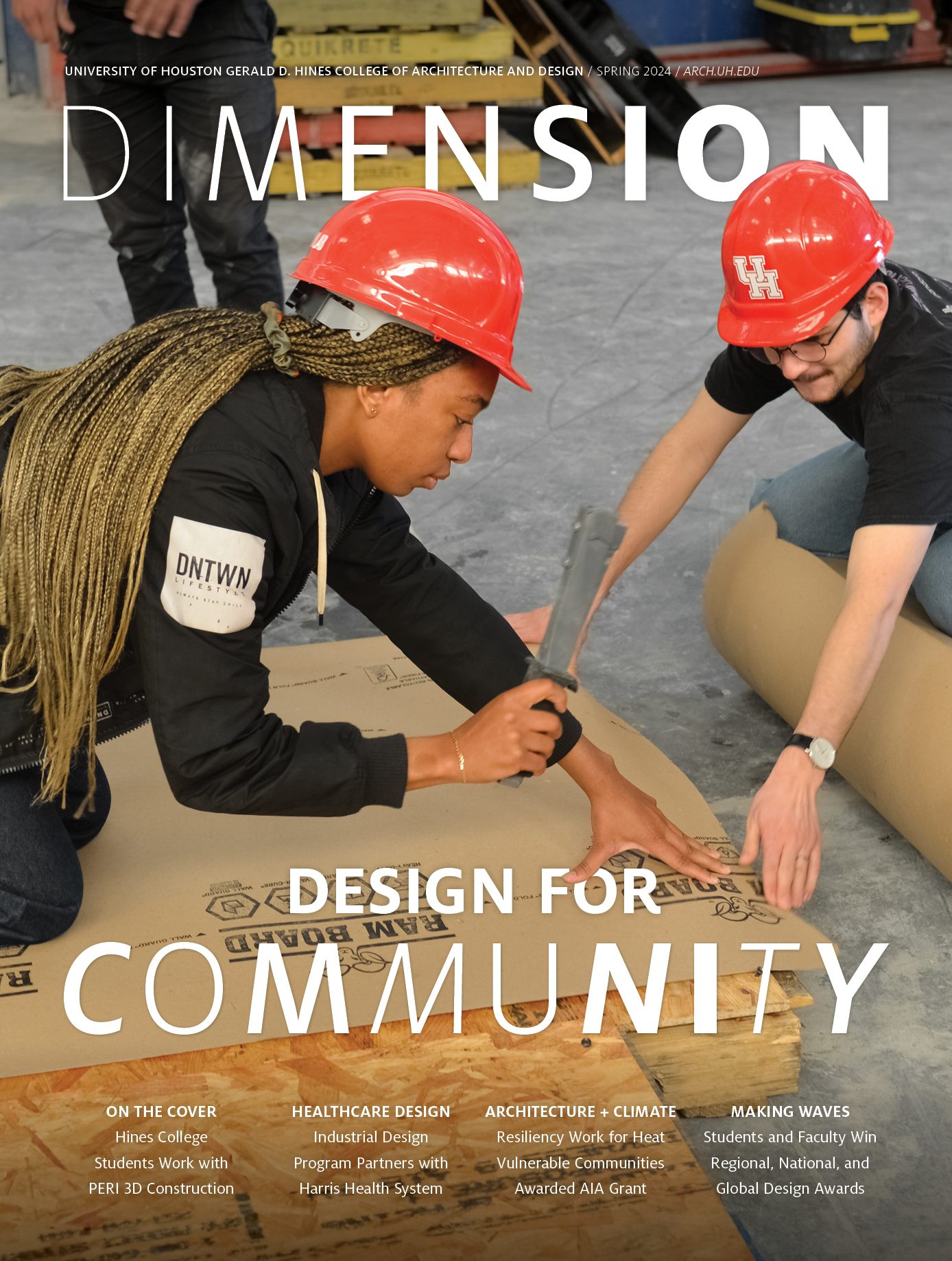Mind Matters
Building a foundation and advancing mental health at the Hines College
by Stephen Schad • June 4, 2024
The mental health crisis has grown exponentially across all aspects of our lives, and academic institutions across the United States are not exempt from addressing the challenges of wellness. In the last decade, higher education has seen an increase in the number of students experiencing anxiety and depression symptoms, corresponding to a rise in students with serious suicidal thoughts and those having developed a suicide plan.
“According to a 2024 report published by the American Council on Education (ACE), 78% of college students disclosed experiencing some level of psychological or mental distress during their collegiate experience,” said associate dean Trang Phan. “This data point is staggering, yet it confirms what higher education practitioners have known for years: mental health issues and challenges are on the rise.”
The burden of balancing academic, personal, social, and work responsibilities has contributed to the decline in mental health. In approaching the mental health crisis, all generations must understand that this balance is drastically different from the past, even as recent as five years ago, let alone 30 or 40 years ago. The Healthy Minds Study 2022-2023 Data Report reported that 78 percent of college students reported moderate or high stress levels.
“Despite the recent focus on mental health, often on the heels of tragedies, our students continue to struggle. Knowing this, we must ask ourselves, what can we do better? There are no one-size-fits-all solutions or approaches,” shared Phan. “Mental health is complex and multi-faceted. Therefore, our understanding of this complexity is essential in our work to develop and adopt meaningful practices and open pathways to thoughtfully and genuinely affirm and respect our students, their concerns, their histories, and their lived/life experiences, not stigmatize or discount them.”
Recently, the University of Houston and Hines College have expanded their efforts to better support their community and provide the resources needed to improve mental health and well-being. However, as a community, all students, faculty, and staff have the responsibility to build a culture of care that supports a culture of care and uplifts mental health.
above: Students can use the Quiet Room in the Student Services Office to relax or find a moment of peace during their busy days
Building a Culture of Care
The student academic experience in architecture and design has long been a rigorous program. Students are known for spending long hours in the architecture building and Burdette Keeland, Jr. Exploration Design Laboratory creating designs and fabricating models for studio classes. The COVID-19 pandemic and subsequent move online showed that much of the curriculum and student work can be carried out without students dedicating all hours of the night to working on projects. The pandemic also proved that more sustainable design practices could be employed, reducing the cost and waste of materials and printing.
Two years ago, the Hines College reviewed and updated its College Culture Statement, setting the stage for a more collaborative and mindful environment for the College’s community. The statement directly addressed the need to encourage wellness:
The College advocates for an environment of support and wellness. Our community treats each other with kindness, respect, and empathy. While the field of design requires rigor and dedication, the College encourages a healthy balance between work and personal life. Health, welfare, and personal well-being supersede the production of work.
Each year, students, faculty, and staff are asked to commit to living the College’s culture statement and building a better community. The statement cannot live only on paper or online; it has to be an integral part of the College’s life and academic experience. It is up to the College's stakeholders to ensure it is well and alive.
During the 2022-2023 academic year, the Hines College embarked on a strategic planning process to propel the College forward. The strategic plan framework included a goal specifically dedicated to a culture of care and wellbeing and the strategies fundamental for seeing this goal to fruition:
GOAL THREE: Culture of Care + Wellbeing
Strengthen our community bonds and embody a culture of care – for ourselves, one another, and the environment of the Hines College.
Strategies:
- Offer opportunities for student connection and feedback at a variety of levels, including within programs and across the College.
- Sustain and strengthen faculty and staff networks within the College to nourish a shared sense of purpose, aligned and effective approaches to pedagogy, interdisciplinary partnerships, and awareness of student needs.
- Create opportunities that promote faculty/staff and student interaction, different modes of studying and working, and a sense of ownership within the College.
- Be sensitive to the financial burdens of a design education and help all students to excel, regardless of socioeconomic status.
- Encourage an environment that enables and supports effective mental health management.
- Normalize mental health care, heighten our community responsiveness to challenges, and promote access to University of Houston resources.
The stage has been set to promote and support wellness within the Hines College community, and the actions of our students, faculty, and staff are making the College a place that is reassuring and supportive of all people and experiences.
above: Interior architecture students created student lounge designs and presented them in the form of zines; a collage from the Body Mods concept
Creating Meaningful Space
Hines College students have long desired a student lounge in the architecture building. With growing student populations and limited space, it has been difficult for the College to pinpoint a devoted area within the building. Outside of studios and classrooms, much of the building’s remaining spaces needed to remain flexible to accommodate various activities. This year, a space was identified on the second floor, and associate professor Marta Rodriguez’s interior architecture studio took on the challenge of creating several design opportunities for this space (see more of their projects).
“Our collaborative project transformed a residual space in the Hines College into a versatile, user-centric student lounge by focusing on joy, transformability, and ergonomics,” explained Rodriguez. “Through teamwork, innovation, and a commitment to ecological responsibility, we created a multifunctional furniture system allowing users to personalize their space for work, relaxation, and collaboration, combining advanced materials, recyclability, and playful design elements.”
With the students’ extraordinary designs, the Hines College is working to identify funding to make the student lounge a reality during the next academic year.
This spring, the Hines College’s Student Services Office (SSO) opened a quiet room for students to take a break from the busyness of life. Located in the SSO, the quiet room is limited to one student at a time for up to twenty minutes each visit.
"We believe the quiet room is a valuable resource for architecture and design students to manage stress and enhance their well-being,” said academic advisor Jennifer Mutz. “This dedicated space offers a peaceful environment for meditation, reflection, or relaxation, which is crucial for maintaining mental health amidst the intense and creative demands of their academic projects."
Space and environment are incredibly important for architecture and design students. The quiet room and future student lounge will provide much-needed dedicated spaces that contribute to positive student mental health.
above: Drawings from the Interior architecture students' student lounge designs
Programming for a Difference
In 2023, following on-campus suicides, the University of Houston launched the CoogsCare program, providing monthly mental health and wellbeing information and resources to the campus community. The program impressed upon the UH community that support is always available for students, faculty, and staff. CoogsCare has become an ongoing and proactive source for the UH community.
The Hines College regularly promotes CoogsCare, but it has also developed opportunities to serve its community directly:
- CoAD Student Reporting Resource – This web platform provides a secure space for students to share concerns about their education or personal welfare.
- Dough-nut Worry – Collaborating with UH Counseling and Psychological Services (CAPS) and the Hines College’s Student Council, the College's advising team organizes events centered around empowerment, camaraderie, and unity for students.
- What’s on your mind? Ask anything. Say anything. Share anything. – Hosted monthly, this forum offers students a secure environment for discussing, expressing, investigating, discovering, empathizing, resolving, questioning, and recognizing issues and matters impacting their daily lives.
- Student Services and Academic Advising – By tapping into various campus resources, College advisors aim to motivate, guide, and assist students in making well-informed choices that propel their academic, personal, and professional endeavors forward.
As college communities continue to struggle with mental health challenges, higher education institutions, including the University of Houston and the Hines College, are responsible for providing students, faculty, and staff with the resources they need to succeed. Mental health and wellbeing are worthy causes that, supported through one’s academic experience, can impact each person beyond the classroom.
Get the Scoop
This story was first published in the spring 2024 issue of DIMENSION Magazine. Read the magazine.
More College of Architecture and Design Stories

A hobby in photography led recent Hines College graduate Felipe Harker (B.Arch. ’24) to find a way to document memories on campus and create a community online through the Instagram account, @UHCloseUp.

Hines College industrial design students have earned recognition for the second year in a row for the FIT Sport Design Awards. The program recognizes professional and student designers across many categories including apparel and equipment for innovation, performance, and sustainability.

The Texas Society of Architects announced the winners of its 2024 Design Awards. Hines College adjunct faculty member Jesse Hager and his firm CONTENT Architecture won an award for their work on Sudor Sauna Studio in Houston.






